Events
The events below are populated from several external sites that publicize grant events relevant to organizations like yours. We also have internal events from Kuja. Use the filters to explore the events that are interesting to you and apply to those that you want to attend!
- Adult Welfare
- Adult Welfare
- Animal Welfare
- Animal Cruelty
- Animal Experimentation
- Animal Rights
- Animal Welfare
- Arts & Culture
- Art
- Art Conservation
- Arts & Culture
- Culture
- Curating
- Documentary Making
- Film
- Galleries
- Games
- History
- Humanities
- Libraries
- Literature
- Museum
- Music
- Performing arts
- Podcasting
- Poetry
- Public arts
- Storytelling
- Visual arts
- Children & Youth
- Child Abuse
- Child Development
- Child Neglect
- Child Nutrition
- Child Participation
- Child Protection
- Child Rights
- Child Soldiers
- Child Survival
- Children & Youth
- Children with Disabilities
- Children’s Education
- Children’s Health
- Early Childhood Development and Education
- Early Marriages
- Orphans & Vulnerable Children
- Research
- School Health
- Sexual and Gender-Based Violence
- Youth
- Youth Economic Empowerment
- Youth Empowerment
- Youth Engagement
- Youth Leadership
- Youth Participation
- Youth Policies
- Youth Representation
- Youth and Climate Change
- Climate Change
- Agroforestry
- Biodiversity
- Biodiversity and Ecosystems
- Carbon Credits
- Chemical Risks
- Climate Adaptation
- Climate Change
- Climate Financing
- Climate Mitigation
- Climate Policy
- Climate Research
- Climate Resilience
- Conservation
- Decarbonization
- Desertification
- Droughts
- Early Warning Systems
- Eco-Friendly Production
- Eco-tourism
- Emerging Technologies
- Emission Reduction
- Environment
- Environmental Justice
- Environmental, Social and Governance
- Forest Management/ Conservation
- Fossil Fuel Management
- Grassroots Climate Response
- Habitat Restoration
- Hazardous Waste
- Invasive Species Control
- Just Energy Transition
- Land Degradation
- Land Restoration
- Marine conservation
- Mountain Ecosystems
- Mountains
- Natural Resource Management
- Ocean Conservation
- Rangelands
- Recycling
- Reforestation
- Renewable Energy
- Sea Conservation
- Sewage Management
- Solid Waste Management
- Sustainable Fashion
- Sustainable Tourism
- Sustainable Use
- Tree Planting
- Urban Green Infrastructure
- Urban Sustainability
- Waste Collection
- Waste Management
- Water Management
- Water Pollution
- Wildlife Conservation
- Communications and Advocacy
- Advocacy
- Communications
- Communications and Advocacy
- Media
- Storytelling
- Community Development
- Community Development
- Education
- Adult Literacy
- Alternative Education
- Digital Literacy
- Early Childhood Development and Education
- Education
- Education Policy
- Education Research
- Education Technologies
- Education Workforce
- Education in Emergencies
- Foundational Learning
- General Education
- Girls’ Education
- Higher Education
- Inclusive Education
- Information and Communication Technology
- Language Education
- Natural Sciences
- Post-Secondary Education
- Primary Education
- School Supplies
- Science, Technology, Engineering, and Mathematics
- Secondary Education
- Skills Development
- Social and Emotional Learning
- Social and Human Sciences
- Technical / Vocational Training
- Elderly
- Age Discrimination
- Elderly
- Elderly People
- Healthy Ageing
- Older People Rights
- Food and Agriculture
- Agricultural Machinery
- Agricultural Research
- Agriculture
- Agro Ecology
- Agroecology
- Farmer’s Rights
- Fishing
- Food Aid
- Food Feminism
- Food Policies
- Food Security
- Food Sovereignty
- Food Systems
- Food Systems Research
- Food Value Chains
- Food and Agriculture
- Genetically Modified Crops
- Irrigation Systems
- Markets and Trade
- Organic Farming
- School Feeding
- Seed Systems
- Soil Health Improvement
- Sustainable Agriculture
- Sustainable Farming
- Gender Equality
- Discriminatory Policies
- Domestic Workers
- Early Marriages
- Early Pregnancy
- Feminism
- Gender
- Gender Equality
- LGBTQIA+ Equality
- Leadership at Work
- Legal Protection
- Maternal and Child Healthcare
- Research
- Sex Work
- Sexual and Gender-Based Violence
- Sexual and Reproductive Health Rights
- Women & Girls
- Women and Girls in STEM
- Women with Disabilities
- Women’s Decision Making
- Women’s Empowerment
- Women’s Health
- Women’s Leadership
- Women’s Livelihoods
- Women’s Public Participation
- Women’s Representation
- Women’s Rights
- Governance
- Activism
- Democracy
- Diplomacy
- Elections
- Foreign Policy
- Governance
- National Security
- Political Movement
- Public Policy
- Healthcare
- Autoimmune Diseases
- Basic Care
- Chronic Illnesses
- Communicable Diseases
- Community Health
- Critical Illnesses
- Disability Healthcare
- Disease Surveillance
- Environmental Health
- Epidemiology
- Family Planning
- Food Safety
- HIV/AIDS
- Health Financing
- Health Promotion
- Healthcare
- Healthcare Technologies
- Hunger Alleviation
- Immunization
- Infectious Diseases
- Malaria
- Maternal Health
- Maternal and Child Health Care
- Maternal and Infant Health Care
- Menstruation
- Mental Health
- Neglected Tropical and Vector-Borne Diseases
- Newborn Health
- Non-Infectious Diseases
- Noncommunicable Diseases
- Nutrition
- Obesity
- Oral Health
- Pandemic
- Physical Health
- Primary Health
- Public Health
- Reproductive Health
- Research
- Road Safety
- Sexual Health
- Sexual and Reproductive Health and Rights
- Sexually Transmitted Infections (STIs)
- Sickle Cell Disease
- Soil-Transmitted Helminth Infections
- Substance Abuse
- Traditional Medicine
- Tuberculosis
- Vaccines
- Water, Sanitation and Hygiene
- Human Rights and Social Justice
- Child Protection and Welfare
- Civic Engagement
- Civil Society
- Disability Rights
- Disadvantaged Communities
- Diversity, Equity and Inclusion
- Economic Justice
- Ending Abuse
- Female Activists
- Gender-based Violence
- Human Rights
- Human Rights and Protection
- Human Rights and Social Justice
- Human Trafficking
- Indigenous Rights
- LGBTQ+ Rights
- Racial Justice
- Refugee Rights
- Research
- Sexual Exploitation and Abuse
- Social Action
- Social Justice
- Youth Rights
- Humanitarian Aid
- Asylum Seekers
- Camp Management
- Cash-Based Transfers
- Climate-Smart Disaster Risk Reduction
- Conflict Areas
- Detainees
- Disaster Management
- Disaster Relief
- Disaster Risk Preparedness and Response
- Disaster Risk Reduction and Recovery
- Displacement
- Early recovery
- Economic Recovery
- Emergency Response
- Essential Services
- Forced Displacement
- Healthcare in Emergencies
- Humanitarian Aid
- IDP Settlements
- International Humanitarian Law
- Medical Commodities
- Migration
- Natural Disasters Response
- Prisoners of War
- Protection
- Reconnecting Families
- Refugee Registration
- Relief Assistance
- Research
- Resettlement
- Resilience Building
- Rights of People in Conflict
- Shelter
- Torture Survivors
- Urban Refugees
- Water, Sanitation and Hygiene
- survivor-led community-based response (sclr)
- Leadership
- Leadership
- Leadership Building
- Leadership Mentorship
- Leadership Training
- Localization and Decolonizing Aid
- Decolonizing Aid
- Decolonizing Bilaterals
- Decolonizing INGOs
- Decolonizing Multilaterals
- Decolonizing Philanthropy
- Localization
- Localization and Decolonizing Aid
- Locally-Led Development
- Shifting Power
- Other
- Other
- Peace
- Community Security
- Conflict and Gender Sensitivity
- Inclusive Governance
- Peace
- Peace and Reconciliation
- Peacebuilding
- Peacekeeping
- Security
- Philanthropy , Giving and Development Aid
- Bilateral Aid
- Charity
- Community Philanthropy
- Development Aid
- Giving
- Individual Donations
- Multilateral Aid
- Philanthropy
- Philanthropy , Giving and Development Aid
- Religious Giving
- Social Entrepreneurship
- Social Impact
- Social Impact Investment
- Volunteering
- Poverty, Livelihoods & Economic Development
- Agribusiness
- Business Growth Programs
- Cash Programming
- Economic Development
- Economic Growth
- Economic and Social Development
- Economic and Social Inequalities
- Enterprise Development
- Entrepreneurship
- Extreme Poverty
- Financial Inclusion
- Income Generation Activities
- Income Security
- Inequity
- Informal Settlements
- Job Creation
- Job Skills Training
- Livelihood Development
- Livelihoods
- Loans
- Microfinance
- Poverty
- Poverty Alleviation
- Poverty, Livelihoods & Economic Development
- Private Sector Engagement
- Research
- Rural Development
- Safe Housing
- Savings
- Social Care
- Social and Economic Advancement
- Trade and Investment
- Underprivileged Communities
- Vulnerable People
- Women’s Entrepreneurship
- Workforce Development
- Public Safety
- Community Resilience
- Conflict Resolution
- Crime Prevention
- Homelessness
- Housing
- Infrastructure Development
- Legal Services
- Public Safety
- Religious Activity
- Church
- Church Outreach
- Church-Based
- Faith-Based Service Delivery
- Interfaith Cooperation
- Interfaith Dialogue
- Religious Activity
- Seva
- Waqf
- Zakat
- Renewable Energy
- Clean Cooking
- Clean Energy
- Electricity
- Emissions Reduction
- Energy Financing
- Energy Transition
- Geothermal Energy
- Green Energy
- Industry Decabornization
- Off-Grid Renewable Energy
- Public Financing
- Research
- Solar Energy
- Wind Energy
- Science, Information and Communication Technology
- Artificial Intelligence
- Biology
- Blockchain
- Digital Products
- Earth Sciences
- Engineering
- Free Internet
- Health Sciences
- Internet Access
- Internet Connectivity
- Internet of Things
- Safe Internet
- Science, Information and Communication Technology
- Science, Technology, Engineering, and Mathematics
- Sciences
- Software and IT
- Telecommunications
- Website Development
- Sports and Recreation
- Equal Play
- Sports and Recreation
- Sports for Development
- Sustainable Development
- Sustainability
- Sustainable Development
- Sustainable Improvements
- Water, Sanitation and Hygiene
- Adequate Sanitation
- Clean Water
- Development Water, Sanitation and Hygiene
- Emergency Water, Sanitation and Hygiene
- Proper Hygiene Practices
- Public Health Water, Sanitation and Hygiene
- Safe Drinking Water
- Safe Water
- Urban Water, Sanitation and Hygiene
- Water Access
- Water Management
- Water Resilience
- Water, Sanitation and Hygiene
As traditional aid models are increasingly questioned and ignored, countries in the Global South are forging a new path—one led by the people, for the people. On April 3, 2025, Kuja hosted a powerful and timely conversation titled “Community-Led Development That Works: A Spotlight on Haiti.” It featured two Haitian leaders with decades of experience in grassroots community-led development.
The conversation provided key insights into how local leadership, solidarity, mutual aid, and the circular economy can transform development in Haiti.
Watch the Full Webinar Recording on YouTube
https://www.youtube.com/watch?v=HKycMPeFS9c&ab_channel=KUJA
Key Takeaways
✅ Community-led development is not a buzzword—it is a proven path to resilience and autonomy.
Both speakers stressed that when communities set priorities and lead implementation, results are more sustainable and meaningful.
✅Endogenous development respects local knowledge and focuses on human dignity.
Both Jean-Patrick and L’Hérisson rejected top-down approaches that marginalize local knowledge and advocated for models that see communities as co-creators rather than beneficiaries.
✅ There is an urgent need to channel resources to local actors.
As the development aid sector continues to fragment, support for long-standing, locally rooted organizations is increasingly important. These groups already have the trust, infrastructure, and vision needed for long-term transformation.
✅ Haiti’s development model offers lessons for the entire Global South.
From biogas plants to community foundations, speakers’ work stressed that solutions already exist – what is needed now is global solidarity and investment in these models.
Speakers
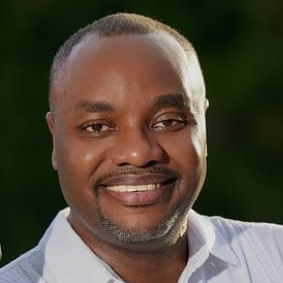
Jean Patrick Lucien
With a background in Computer Engineering from Northeastern University and an MBA, Jean-Patrick has spent over 20 years as an Application Engineer at Siemens Corporation, where he applies his technical skills to solve complex global challenges.
Beyond his corporate career, Jean-Patrick plays a vital role in sustainable development initiatives in Haiti through the EDEM Foundation. His work focuses on education, economic development, and capacity building in Île-à-Vache and southern Haiti, where he owns and operates the Vacation Village Resort and the Village for Innovation, Technology, Education and Sport (VITES), contributing to local tourism and development. One of his key achievements is collaborating with the US Naval Academy to develop biodigesters—innovative systems that convert waste into methane gas for cooking and compost for agricultural use, aligning with Haiti’s sustainability and environmental goals. Currently, Jean-Patrick is leading the Safe Space Project in Haiti, which offers children access to campsites, school gardens, and safe learning environments. This project aims to nurture personal growth, safety, and education, while introducing children to sustainable practices through hands-on agricultural experiences.
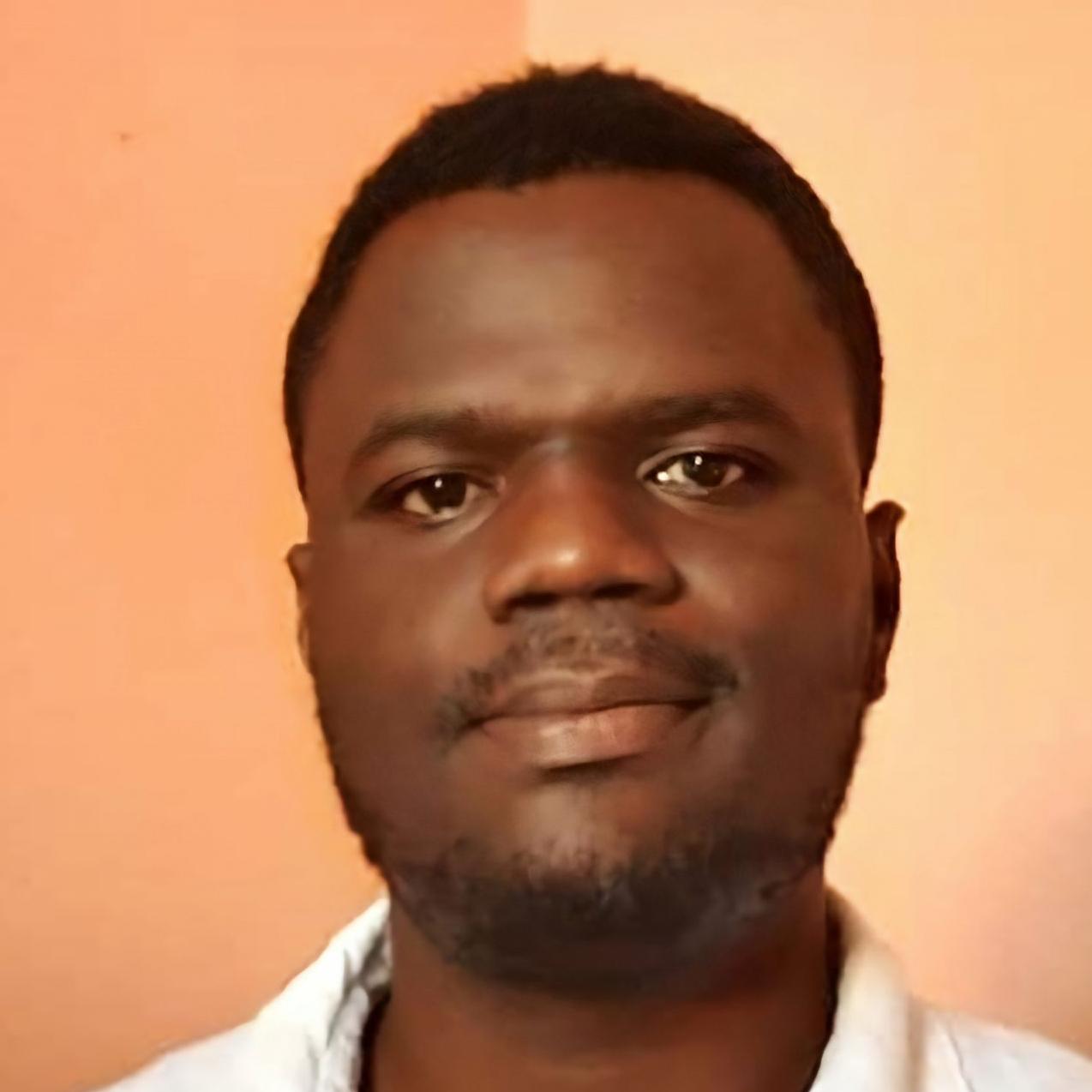
L’Hérisson Hilaire
L’Hérisson Hilaire is a professional agronomist, specialist in plant production, agricultural entrepreneur. L'Hérisson joined the Fondation Communautaire Haïtienne-Espwa/The Haiti Community Foundation (FCH-Espwa) in November 2020 and is its current Executive Director. For more than four years, L’Hérisson has been deeply engaged in community philanthropy and endogenous development with FCH-Espwa in Haiti.
Impact of Funding Cuts in Benin
A conversation with community leaders and local aid professionals on the brutal impact on the sector and the need for structural change.
On March 20, 2025, Kuja hosted its first webinar on our newly launched site! Panelists Bio Yacoubou Bassirou, Moustaphaou Imorou, Djalidou Aboudou Salifou, and Kader Abdel Sabi Pate—local Benin activists and aid professionals—presented the brutal impact of the USAID funding freeze on Benin. Their firsthand insights shed light on how these cuts have affected communities.
When the Kuja team first spoke to the panelists, they were hopeful the funding stop would be temporary. However, by the time of the webinar, they had come to terms with the reality that their projects had been permanently eliminated. Like many local leaders across the Global South, they are now navigating the loss of stability and working to adjust despite the immense challenges.
The Impact on Benin
Francophone Africa is often overlooked in global aid, and Benin was already receiving limited funding—only $77 million from USAID in 2024. Additional support came from the United States African Development Fund (USADF) and the Millennium Challenge Corporation (MCC). The Benin panelists shared how their past projects had directly impacted nearly four million people and indirectly influenced about 65% of the population. With the sudden withdrawal of U.S. aid, the consequences have been devastating across multiple sectors, from health and infrastructure to economic development and national security.
Bio, one of the panelists, described this as a “‘cascade effect,” warning of an impending national famine and extreme poverty. For local aid workers, the crisis is compounded by the lack of a safety net and the responsibility of supporting large families. Despite these setbacks, the panelists shared how they are actively seeking alternative funding sources and exploring in-country and African-based resources to sustain their work.
At the end of the discussion, Kader captured the sentiment of many Global South leaders facing funding uncertainty:
“It is time that each African wakes up and takes care of his own… Our allies from whom we had hoped support, cut their ties with us at a time when we needed them the most… We are planning the future with the resources that we can marshal, and we will do what we need to do little by little. Africans will work together to build Africa’s future.”
Kuja’s webinar underscored the resilience of local organizations and leaders. As aid dynamics continue to shift, these voices must remain at the forefront of conversations about sustainable solutions for the Global South.
Watch the Recording:
https://youtu.be/oSIEUWmD79s?si=4MBc10iTJCq5xyNo
Speakers:
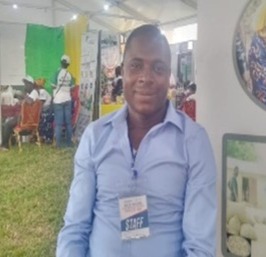
Abdel Kader Sabi Pate:
Capacity Building and Management of Infrastructure and Equipment for SMEs: “with the USADF program” expert.
Agro-economist and project manager specializing in capacity building, innovation, and agricultural project management. Born on December 4, 1990, he has expertise in areas such as agroecology, agricultural advisory services, agricultural cluster value chain management, and environmental protection. He has worked on major projects, including with UNDP, USADF, and CORAF, where he contributed to the resilience of farming communities in the face of climate change and the development of financing strategies for climate-smart agriculture in West Africa.
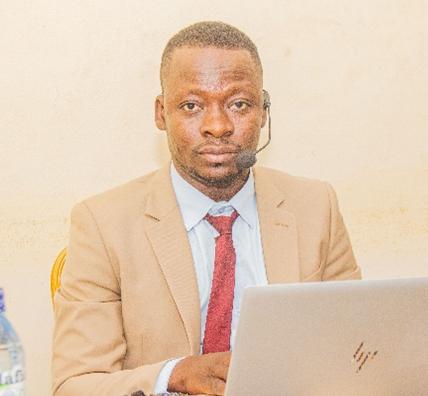
Aboudou Djalidou Salifou:
Countering Violent Extremism & Natural Resources Management Specialist
Expert in project management, peacebuilding, and sustainable development, with over 10 years of experience in the NGO and humanitarian sectors. He holds a PhD in Sustainable Natural Resource Management. Specializing in social cohesion, youth and women's empowerment, and sustainable ecosystem management, he has successfully led strategic initiatives to promote the resilience of vulnerable communities. His commitment has led him to design, implement, and evaluate large-scale projects funded by renowned donors such as USAID, UNDP, and the World Bank.
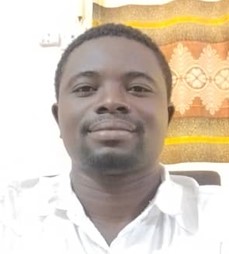
Imorou Moustaphaou:
Specialist in Agroecology and Biodiversity Conservation
After his basic training in Agronomy (specialty: Management of forests and protected areas), Moustaphaou benefits from more than 10 years of practical experience in forest ecology, biodiversity preservation and resilient agriculture with a focus on social standards, having held several positions, the most recent of which is that of Expert in Ecology and Biodiversity with the company GINGER SOFRECO within the framework of “Consultant Services in Program Management and Social Environmental Management” under MCC funding.

M. Bio Yacoubou Bassirou:
Founder of Maison des Tortues, a Civil Society Network for Civil Society Organizations for the protection of the environment
A leading African activist, advisor and expert in conservation, community mobilization as well as in resource and organizational development, M. Bassirou is a Founding Member of Maison des Tortues, a network of civil society organizations focused on conservation and environmental protection
Join us for this 24 hours Event
Every year we invite our community, partners and end-users to come and meet us! It's the ideal event to get together and present new features, roadmap of future versions, achievements of the software, workshops, training sessions, etc... This event is also an opportunity to showcase our partners' case studies, methodology or developments. Be there and see directly from the source the features of the new version!
